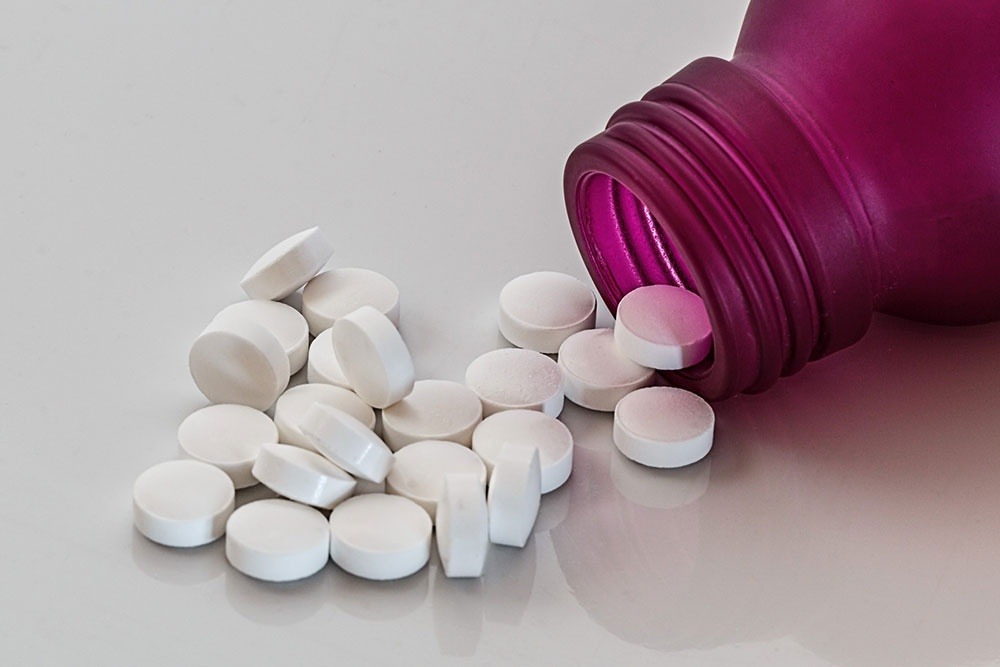In high schools and colleges across the U.S., students feel the pressure to excel. This means late study nights fueled by large amounts of caffeine. For some students, caffeine isn’t enough, so they start using study drugs.
What Are Study Drugs?
Prescription amphetamines or stimulants are associated with heightened attention, concentration, and focus. These medications treat symptoms of attention deficit hyperactivity disorder (ADHD). However, when they are abused, they have stimulant effects and can be addictive.
Why Do Students Use Study Drugs?
Study drugs are prescription stimulants students use to improve their performance in school. The drugs increase alertness and focus, and students believe they help with late-night study sessions. College students may also take these drugs to lose weight or to party.
Students believe study drugs are “smart drugs,” and they improve focus, memory, and performance. But, this is not the case. Many studies show that students who do not abuse study drugs perform better in school.
Most study drugs are Schedule II controlled substances and have a significant potential for abuse. Taking medications such as Adderall without a prescription or medical reason is dangerous and can be fatal.
How Do Young Adults and Students Abuse Study Drugs?
Most students and young adults have good intentions when using study drugs. Students are typically cramming for a test or finishing an assignment. However, others want to stay up and party. So they often snort or inject study drugs to speed up the effects. College athletics is very competitive, and some athletes believe they need stimulants to perform better.
Combining Adderall and Alcohol
Young adults who misuse study drugs, especially to party, often combine medications with alcohol. This is extremely dangerous and can cause serious health complications.
Adderall, for example, can numb the effects of alcohol. This leads to drinking more than intended which can cause alcohol poisoning or a fatal overdose.
Common Study Drugs
Most people hear stimulant drugs, and they think about Adderall and Ritalin. However, there are a variety of stimulants used as study drugs.
Adderall
Adderall is a combination of amphetamine and dextroamphetamine. This tablet comes in two forms, instant-release (IR) and extended-release (XR). It is typically prescribed for ADHD and narcolepsy. However, it is abused for its effects on alertness, focus, energy, and productivity.
Ritalin
Ritalin is a central nervous system stimulant. It affects chemicals in the brain to control impulses and hyperactivity. Ritalin is similar to Adderall and treats attention-deficit disorder (ADD), ADHD, and narcolepsy. It is also abused to increase focus and alertness.
Concerta
Like Ritalin, Concerta contains methylphenidate. These drugs also produce the same effects, and people often confuse the two. Concerta, however, lasts longer than any ADHD medication. It peaks between six to ten hours after taking. While the effects of Adderall XR last about seven hours, and Adderall IR only lasts four hours.
Vyvanse
This medication is prescribed to treat ADHD. However, it is becoming more common as a study drug. This is because it increases attention and decreases impulsiveness and hyperactivity.
Dexedrine
Dexedrine is the brand name for dextroamphetamine. It is also used to treat ADHD and sleep disorders. As a study drug, it is used because it increases focus and promotes alertness.
Focalin
Focalin is a CNS stimulant that increases attention, alertness, and energy. A small dose of Focalin produces the same effects as a larger dose of Ritalin.
Provigil
Provigil is the brand name for modafinil and is a CNS stimulant and nootropic. This medication treats sleep disorders by improving wakefulness. A nootropic drug enhances memory, cognitive function, motivation, and creativity.
Are Study Drugs Addictive?
When prescription stimulants such as ADHD medication are used as prescribed, they are less likely to become addictive. However, when abused, they have a high potential for addiction. Study drugs cause changes in the brain similar to cocaine when abused.
Short-Term Side Effects of Misusing Study Drugs
When students and young adults use study drugs or take them in high doses, they increase the risk of severe side effects. The short-term side effects include:
- Nausea
- Headaches
- Dizziness
- Restlessness
- Poor appetite
- Increase in heart rate, blood pressure, body temperature
- Change in behavior
- Impaired judgment
- Psychosis
- Hallucinations
- Irritability
- Seizures
- Convulsions
Abusing study drugs can cause a fatal overdose. Taking high doses, injecting, and snoring study drugs increases the risk of overdose. Signs and symptoms of a study drug overdose include confusion, hallucinations, and convulsions.
Long-Term Side Effects of Study Drugs
Beyond the risk of addiction, study drugs can cause various side effects ranging from mild to severe. Dangerous side effects of study drugs include:
- Extremely high blood pressure
- Irregular heart rate
- Insomnia
- Permanent damage to the blood vessels in the heart and brain
- Epilepsy
- Kidney damage
- Liver damage
- Apathy
- Depression
- Psychosis
- Strokes
- Brain damage
- Lung damage
Students who abuse study drugs long-term build a tolerance to the drugs. As a result, they require higher doses to feel the same effects. However, this also raises their risk of overdose. Common signs of an overdose include seizures, vomiting, fever, and coma.
Treatment for Study Drug Addiction

Deciding to get help is the most challenging step in recovery. There are various options for treatment to meet each person’s needs, including inpatient and multiple outpatient options. Let’s take a look at the steps of treatment and recovery.
Detox from Study Drugs
The first step in the treatment of study drug addiction is the detoxification process. In detox, doctors help manage withdrawal symptoms as your body rids itself of toxins. Detox can last up to a week or longer, depending on the severity of the addiction.
Prescription stimulants such as Adderall stay in the body longer and build up in the body over time. As a result, it takes the body longer to rid itself of the drug. Common withdrawal symptoms from study drugs include:
- Mood swings
- Depression
- Sleep disturbances
- Headaches
- Fatigue
- Intense cravings
- Irritability
- Aggression
- Restlessness
Although there aren’t any FDA-approved drugs to treat stimulant addictions, certain medications may help decrease cravings and encourage lasting recovery.
Medication-Assisted Treatment for Study Drug Addiction
Two medications that may help in recovery from study drug addiction are Prozac and Naltrexone.
- Prozac treats mood disorders such as depression and obsessive-compulsive disorder (OCD). It may also help reduce cravings.
- Naltrexone Is commonly prescribed to treat opioid and alcohol addiction. But, it may also be effective in treating study drug addiction.
Inpatient Treatment for an Addiction to Study Drugs
In inpatient addiction treatment, people receive 24-hour psychiatric and physical care. Inpatient treatment lasts between 30 and 90 days, depending on the person’s needs. Each person who enters inpatient treatment must complete a full assessment to ensure treatment covers all addiction and co-occurring mental health disorders.
The benefits of inpatient treatment provide the best chance at lasting recovery can include:
- Stepping away from outside influences and stressors
- Education
- Stress management techniques
- Coping skills for relapse prevention
- Treatment of co-occurring disorders such as depression and anxiety
- Creating healthy boundaries
- Helps rebuild relationships
Outpatient Treatment for Study Drug Addiction
The most significant difference between outpatient and inpatient treatment is the intensity of treatment; in outpatient treatment, you still have the triggers and stress of daily life.
The benefit of outpatient treatment is people can attend treatment and still attend school, work, and tend to family responsibilities. There are various outpatient programs depending on the needs of the person. Some programs are more intense and require five days of treatment, and other less intense programs only require two to three days a week in therapy.
Types of outpatient treatment programs include:
- Partial Hospitalization Program (PHP)
- Intensive Outpatient Program
- Outpatient Program
Aftercare Treatment for Study Drug Addiction
Many people think once they complete a treatment program, they are cured. However, addiction is a chronic disease. And like all chronic diseases, without ongoing treatment, symptoms can return.
Psychotherapy is a large part of treatment and recovery. With the help of a therapist, people learn to identify situations that trigger the desire to use study drugs and how to manage the impulses effectively.
Support groups are another way to encourage lasting recovery. Building relationships with and listening to others with the same struggles can help you choose healthier alternatives to drug abuse.
Statistics on Study Drug Abuse in America
While study drugs are a problem among high schoolers, they are commonly abused by college students. Study drugs are also often mixed with alcohol and other prescription and illicit drugs leading to fatal consequences.
Many students have been prescribed stimulants for medical reasons like ADHD. But, the rate of misuse among college students is around 20 percent. An article in the Journal of Undergraduate Neuroscience Education reports that most abuse is by students without a prescription.
Get Help Today Study Drugs Addiction at Westwind Recovery®

Are you or a friend struggling with an addiction to study drugs? Do you suspect your child is taking too much ADHD medication? We are waiting to answer your questions and get you or your loved one the treatment they need. Contact us today for more information.

Dr. Deena is the Chief Clinical Officer of Westwind Recovery®, an award-winning outpatient treatment center in Los Angeles where she oversees the clinical and administrative program and treatment methods. Dr. Deena is a doctor of psychology and licensed clinical social worker since 1993. LCSW #20628. Originally from the East Coast, Dr. Deena has worked running treatment centers, worked as a therapist in psychiatric hospitals as well as school settings and currently has a thriving private practice in the LA area. Dr. Deena has appeared regularly on the Dr. Phil Show as an expert since 2003. She has also been featured on many other TV shows, podcasts and has contributed to written publications as well as podcasts.




